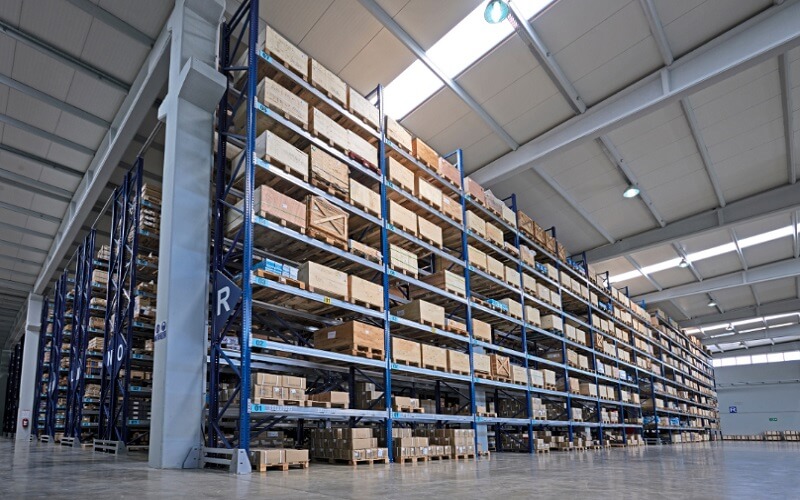Efficient warehouse operations are crucial to the success of any business that handles the processing of physical products. However, warehouses often face common challenges that can impede their operations and affect optimal operability. To address these challenges, modern ASRS (Automated Storage and Retrieval System) technology can be an effective solution. This article will explore each of these challenges in detail and discuss how ASRS warehouse technology can help overcome them.
Limited Warehouse Space
One of the most common challenges in warehouse operations is limited space. As businesses grow, their inventory expands, and they need to find ways to optimize their warehouse space. This is where ASRS warehouse technology can be particularly useful. By utilizing vertical space and automating storage and retrieval processes, ASRS technology can help warehouses store more products in less space. This allows warehouses to increase their storage capacity and reduce the need for traditional storage methods such as racks and shelves. With ASRS technology, warehouses can maximize their space usage and efficiently organize the inventory.
High Labor Costs
Another common challenge in warehouse operations is high labor costs. Traditional warehousing requires significant manual labor, which can be costly and time-consuming. With ASRS warehouse technology, warehouses can automate many of the tasks that employees previously performed. This includes tasks such as order picking, inventory management, and material handling. By automating these tasks, ASRS technology can help reduce labor costs and increase productivity.
Inventory Inaccuracy
Inventory accuracy is crucial to the success of any warehouse operation. However, manual inventory tracking and management can be prone to errors, leading to inventory inaccuracy. With ASRS warehouse technology, warehouses can improve inventory accuracy by providing live visibility into inventory levels and automating inventory tracking and management processes. This enables warehouses to make informed decisions about inventory levels, reducing the risk of stock running out or overstocking.
Slow Order Processing and Fulfillment
One major challenge that many warehouses face is slow order processing and fulfillment times. When customers place an order, they expect it to be fulfilled quickly and accurately. However, traditional manual picking and packing processes can be time-consuming, leading to inventory errors, order delays, and dissatisfied customers.
ASRS warehouse technology can help address this challenge by automating the order fulfillment process. ASRS systems can work seamlessly with warehouse management systems (WMS) to receive and process orders, retrieve the necessary items from inventory, and transport them to the packing area for shipment. This process can be completed quickly and accurately, reducing the time and labour required to fulfil orders.
ASRS technology can also help reduce errors in the process. The system can accurately track inventory levels, ensuring that the correct items are selected for each order. This reduces errors and ensures customers receive the correct items promptly. With faster and more accurate order fulfilment, businesses can improve customer satisfaction, increase sales, and gain a competitive advantage in the market.
Safety Risks
Safety is paramount in any warehouse operation. Employees face several safety risks with traditional warehousing methods, including lifting heavy objects and operating heavy machinery. ASRS warehouse technology can help reduce safety risks by automating hazardous tasks and improving warehouse traffic flow and organization. This reduces accidents and injuries, creating a safer working environment for employees.
Complex Regulatory Compliance
Warehouses must comply with complex regulations related to inventory management, safety, and environmental standards. These regulations can be challenging to navigate, leading to compliance issues and potential fines. ASRS warehouse technology can help ensure compliance by automating processes and enabling real-time tracking and reporting. This makes it easier for warehouses to monitor and maintain compliance, reducing the risk of non-compliance and potential penalties.
ASRS technology can be a valuable solution to common challenges in warehouse operations. By optimizing space usage, reducing labour costs, improving inventory accuracy, speeding up order processing and fulfilment, reducing safety risks, and ensuring regulatory compliance, ASRS technology can help warehouses operate more efficiently and effectively. To maximize the benefits of ASRS technology, warehouses must carefully assess their needs and select the appropriate technology and implementation approach.
With the right strategy and technology, warehouses can significantly improve their operations and position themselves for success in a highly competitive market. However, it’s important to note that ASRS warehouse technology is not a one-size-fits-all solution. Different ASRS systems may be more appropriate for warehouse sizes, industries, and product types. Additionally, implementing ASRS technology requires careful planning, training, and ongoing maintenance to ensure optimal performance and longevity.
Conclusion
Businesses considering implementing ASRS warehouse technology should work closely with experienced providers to assess their needs and select the appropriate technology and implementation approach. With the right strategy and technology, warehouses can significantly improve their operations and position themselves for success in a highly competitive market. As the industry continues to evolve, ASRS warehouse technology will undoubtedly play an essential role in helping businesses overcome common challenges and achieve their goals.



